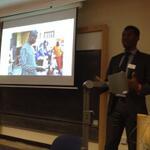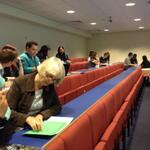Call for Papers- Western Balkan Information Literacy Conference June 17th-20th 2015 Bihać, Bosnia & Herzegovina.
 Wednesday, January 7, 2015 at 7:15AM
Wednesday, January 7, 2015 at 7:15AM Western Balkan Information Literacy Conference
JUNE 17th-20th 2015 Juni na Uni 2015. - Hotel "Opal" Bihać, Bosnia & Herzegovina, Conference website:http://www.wbilc2015.kbbi.ba/en/
The theme is: Information & media literacy for lifelong learning: digital citizenship for a digital age.
"In this Information Age the rise of digital and social media tools has brought with it some amazing innovations and immense challenges. The challenge to achieve information literacy (IL) in this information rich society is vital for lifelong learning and allows us to capitalise on the diverse and often overwhelming range of information choices which we have been confronted with by the power of the Internet. This great power has forced all of us to develop strategies for confronting issues concerning accessibility, reliability, authenticity and validity as well as information overload. Information Literacy is a vital transferable skill for lifelong learning in both formal and informal learning environments throughout people's lifetimes. Information literacy facilitates active citizenship of individuals. Information literacy prepares people for lifelong learning because it enables them to find the information they need for any task or decision at hand. In helping to provide and expand access to information, helping to facilitate full participation in Society- our role is crucial. We must prepare for a Society full of Information, prepare for Digital Citizenship for a Digital Age."
Main Themes are:
A. Information literacy in the modern world
B. Librarians as support to the lifelong learning process
C. Media and information literacy – theoretical approaches (standards, assessment, collaboration, etc.)
D. New aspects of education/strategic planning, policy, and advocacy for information literacy in a digital age.
Sounds like a busy conference with lots of relevant themes and topics - look forward to hearing more about it.
Submissions in any of the following forms are accepted:
• Full paper to be published in conference proceedings
• Presentation
• Roundtable discussion
• Poster session
• Train-the-trainers workshop
• PechaKucha
Important Dates
Paper submission deadline May 15, 2015
Notification of acceptance May 30, 2015
Dissemination of final programme June 02, 2015
Deadline for authors to submit slides June 04, 2015
For further information and additional details see the Western Balkan Information Literacy Conference website at:http://www.wbilc2015.kbbi.ba/en/


